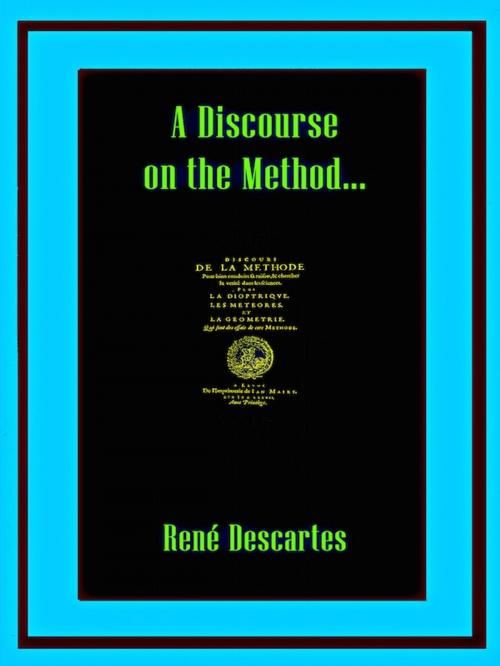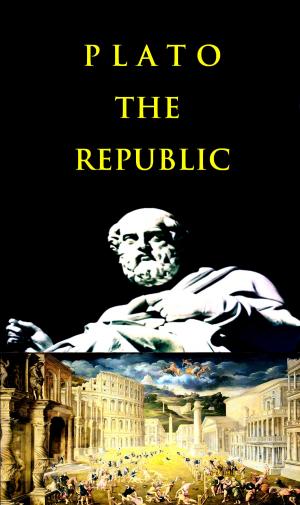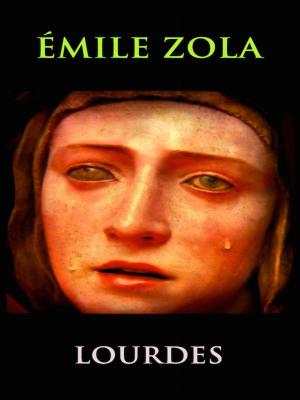A Discourse on the Methods...
Nonfiction, Religion & Spirituality, Philosophy, Logic, Science & Nature, Nature| Author: | Rene Descartes | ISBN: | 1230000353489 |
| Publisher: | Editions Artisan Devereaux LLC | Publication: | April 10, 2015 |
| Imprint: | Language: | English |
| Author: | Rene Descartes |
| ISBN: | 1230000353489 |
| Publisher: | Editions Artisan Devereaux LLC |
| Publication: | April 10, 2015 |
| Imprint: | |
| Language: | English |
“Cogito Ergo Sum.
I Think, Therefore I Am…”
—René Descartes
Descartes' Discourse marks a breakpoint in European thought: in it, he sets out a radical new philosophy, which begins with a proof of the existence of the self (the famous "cogito ergo sum").
Next he deduces from it the existence and nature of God, and ends by offering a radical new account of the physical world and of human and animal nature.
Written in language accessible to all, it swept away all previous philosophical traditions.
René Descartes (1596–1650) was a French philosopher, mathematician and writer. Called the father of modern philosophy, much subsequent Western philosophy is a response to his writings, which are studied closely to this day.
Descartes' influence in mathematics is equally apparent: the Cartesian coordinate system, allowing reference to a point in space as a set of numbers, and allowing algebraic equations to be expressed as geometric shapes in a two-dimensional coordinate system (and conversely, shapes to be described as equations), was named after him.
He is likewise credited as the father of analytical geometry: the bridge between algebra and geometry, crucial to the discovery of infinitesimal calculus and analysis.
“Cogito Ergo Sum.
I Think, Therefore I Am…”
—René Descartes
Descartes' Discourse marks a breakpoint in European thought: in it, he sets out a radical new philosophy, which begins with a proof of the existence of the self (the famous "cogito ergo sum").
Next he deduces from it the existence and nature of God, and ends by offering a radical new account of the physical world and of human and animal nature.
Written in language accessible to all, it swept away all previous philosophical traditions.
René Descartes (1596–1650) was a French philosopher, mathematician and writer. Called the father of modern philosophy, much subsequent Western philosophy is a response to his writings, which are studied closely to this day.
Descartes' influence in mathematics is equally apparent: the Cartesian coordinate system, allowing reference to a point in space as a set of numbers, and allowing algebraic equations to be expressed as geometric shapes in a two-dimensional coordinate system (and conversely, shapes to be described as equations), was named after him.
He is likewise credited as the father of analytical geometry: the bridge between algebra and geometry, crucial to the discovery of infinitesimal calculus and analysis.















